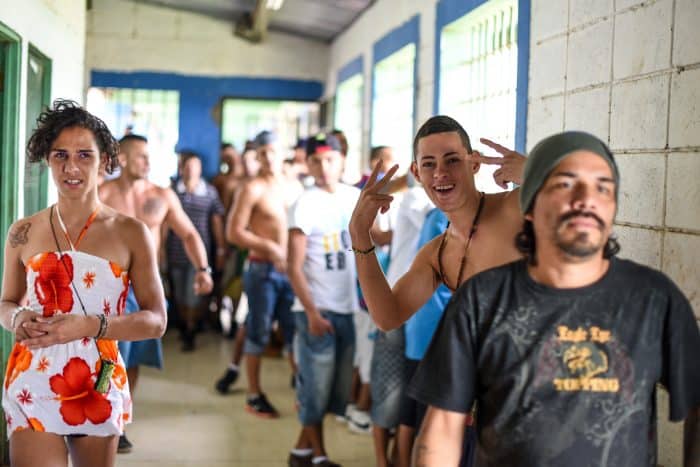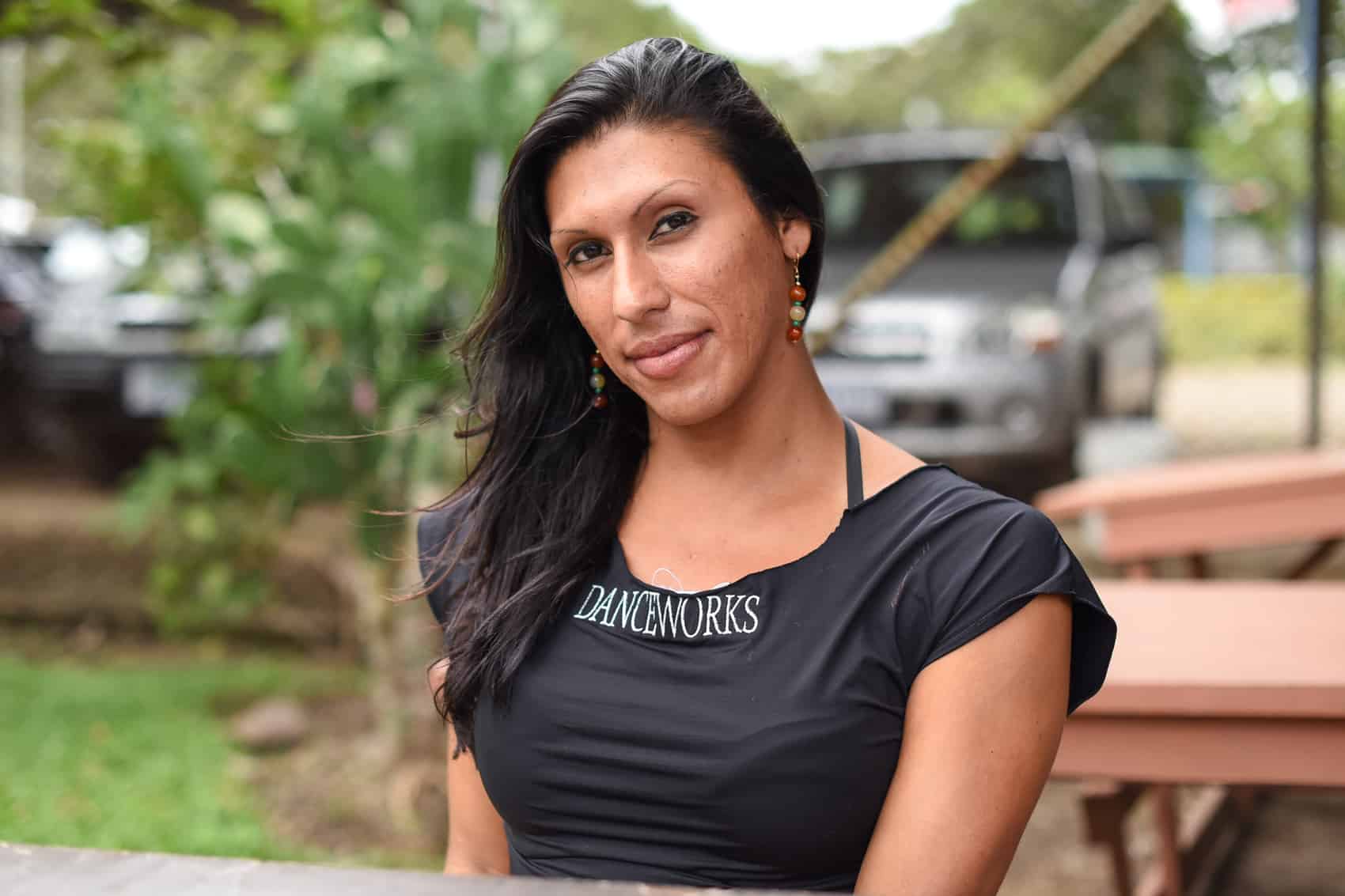Mónica Navarro pulls her long black hair behind her ear and lets it fall down her back where it stops just above her waist. Mascara gives her eyes a kohl look. She has high cheek bones. The way she carries herself, she might be a model if she weren’t serving 10 years for armed robbery.
Navarro, 25, is one of 10 transgender prisoners serving time in San Rafael Prison.
Last year, the Ombudsman’s Office decried a lack of access to health services and education for trans prisoners at San Rafael. At a time when the Costa Rican prison system finds itself bursting at the seams after a decade of overcrowding, there are few set criteria governing how transgender inmates should be handled by the prisons. The Ombudsman’s Office is expected to release a report on the issue later this month.
Transgender prisoners are sent to either a men’s prison or to Costa Rica’s only women’s prison, El Buen Pastor, based on the sex assigned to them by the court system at the time they are sentenced, according to Justice Ministry spokesman David Delgado.
Once prisoners like Navarro, who was born male, are processed they are typically sent to men’s prisons where they live among the general inmate population. Reynaldo Villalobos, director of the Costa Rican Penitentiary System, said that trans prisoners were once isolated in prisons but a court decision ordered the system to integrate transgender prisoners, arguing that segregation violated their human rights.
Villalobos admitted that being assigned to gen pop was a frightening prospect for many trans prisoners.
“They come in with a lot of fear,” said Villalobos. “We try to reassure them.”
He said there were no reports of violence against any of the transgender prisoners in San Rafael.
Navarro said she would prefer to be separated from the general population in San Rafael. She said that while she hasn’t suffered any physical violence she and other trans inmates have been verbally harassed by other inmates.

“There’s a lot of homophobia, transphobia,” Navarro said. “I don’t push back against it. We have to keep quiet, just let them yell at us, treat us like they do. We can’t do anything.”
Mariela Matarrita, who worked on the forthcoming investigation from the Ombudsman’s Office, said her interviews with San Rafael’s transgender prisoners provided no consensus on the issue.
“It’s very relative,” when it comes to trans prisoners’ housing preference, Matarrita said. “From the interviews we’ve conducted, some say they would prefer to be housed with women prisoners. Others say they prefer to stay where they are now,” in gen pop at San Rafael.
Unsurprisingly, prisoners like Navarro stand out from the prison crowd. In 2012, a prisoner at La Reforma Prison — just down the road from San Rafael — successfully petitioned the Constitutional Chamber of the Supreme Court for the right to dress as he liked, including in women’s clothing. The court said discrimination based on a person’s sexual orientation was unconstitutional and that establishing an “arbitrary limitation” on how the prisoner dressed violated his (the court considered the prisoner male) right to equal treatment and human dignity.
The court did say the prisoner’s clothing choice could not be “scandalous,” call undue attention, or risk the security of the other inmates. (An earlier, 2003 court case ruled that high heels were not appropriate prison wear.)
Navarro, the trans prisoner at San Rafael told The Tico Times that conditions there were “terrible.” The prison population is nearly 80 percent over capacity. Overcrowding is one of the impediments to any prisoner getting access to health services, let alone a prisoner potentially with special needs, said Kattia López, spokeswoman for Proyectos en Salud Integral, which runs sexual health workshops at San Rafael on a regular basis.
López said that PSI has been offering health classes at the prison for five years now. She said the group’s services address the general prison population, not just transgender prisoners, but that the organization had held separate meetings for trans prisoners to express any needs or questions that they might otherwise feel uncomfortable addressing in front of others.
“The conditions that create vulnerable situations in prisons for the trans population are very similar to those that they are exposed to outside of the penitentiary,” López said.
López said that beyond transgender prisoners, the group also addresses health issues for men who have sex with men, who may not identify as gay, with a focus on HIV prevention and testing.
She said some transgender prisoners worked in the sex trade prior to their incarceration and if they continue to offer those services in prison they need to be aware of the risks. Ideally, she said, they would have access to condoms for sex work or consensual relations between inmates.
Inmate Mónica Navarro told The Tico Times that she could not get access to condoms at San Rafael.
Along with the pending report from the Ombudsman’s Office, Justice Ministry spokesman David Delgado said that the penitentiary system would be starting a study this month to collect more information about transgender, gay and lesbian inmates. Such information is currently not tracked by the ministry, he said in an email.
Mariela Matarrita of the Ombudsman’s Office said that the prison has made progress addressing access to health services, educational opportunities and gender expression for transgender prisoners at San Rafael.
“Prison officials have been very open to recommendations and observations from the Ombudsman’s Office when it comes to this very special, specific population and the specific needs they require,” Matarrita said.
Mónica Navarro said that her family was “marvelous” and has always supported her decision to come out as a girl, which she did at age 9. But beyond her family, many of the negative stereotypes and confusion about transgender people have followed her into prison.
“Lots of people are uncomfortable,” she said.






